THE ILLUSTRIOUS HISTORY OF 1824 TECHNO
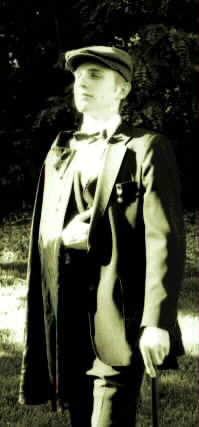 Lord Hugh MacPhereson, born Winfield Hugh MacPhereson, was born in
Scotland in 1803; the son of an inventor-noble named Lord Julius Macphereson. Besides
owning great tracts of land and huge piles of wealth, Julius had invented some of the
greatest industrial and agricultural machines in the world, giving great honor to the
family name. When Julius passed away in 1820, Lord Hugh MacPhereson inherited his entire
estate, including a private army of crack troops.
Lord Hugh MacPhereson, born Winfield Hugh MacPhereson, was born in
Scotland in 1803; the son of an inventor-noble named Lord Julius Macphereson. Besides
owning great tracts of land and huge piles of wealth, Julius had invented some of the
greatest industrial and agricultural machines in the world, giving great honor to the
family name. When Julius passed away in 1820, Lord Hugh MacPhereson inherited his entire
estate, including a private army of crack troops.
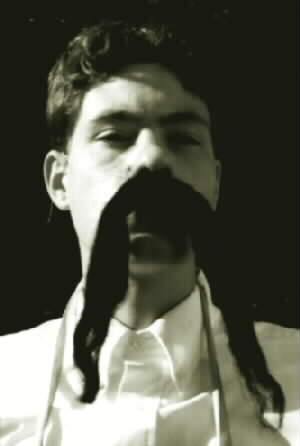 Meanwhile, in the rough and tumble American frontier city of
Pittsburgh, Buel F. Rawlings was toiling away in his workshop, the Shoddy Brothers
Blacksmith Shop. In between grueling shifts at the forge and anvil, Buel would tinker with
a steam-powered synthesizer. He dreamed of a day when he could fully tap into his creative
energies and blast out low quality, mass-produced music. Buel tried to gain recognition as
a musician, but was rejected as a maniac by many of the elite concert groups.
Meanwhile, in the rough and tumble American frontier city of
Pittsburgh, Buel F. Rawlings was toiling away in his workshop, the Shoddy Brothers
Blacksmith Shop. In between grueling shifts at the forge and anvil, Buel would tinker with
a steam-powered synthesizer. He dreamed of a day when he could fully tap into his creative
energies and blast out low quality, mass-produced music. Buel tried to gain recognition as
a musician, but was rejected as a maniac by many of the elite concert groups.
Just as Buel was planning to end his attempts, Lord Hugh MacPhereson arrived in New York by sail ship. On a memorable day in 1824, Hugh saw Buel playing in a concert hall. Intrigued by the different sound of the music and the haphazard collection of steam-powered synthesizers, Hugh gave Buel a large sum of money for investment in new instruments. MacPhereson also created the 1824 Techno Outfit, and thereafter, Buel and he were permanent members.
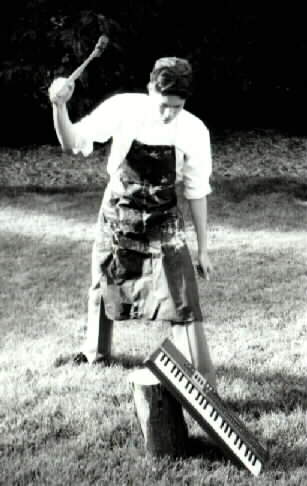 Hugh MacPhereson brought over many of
his father’s inventions from Scotland to aid in Buel’s mission in creating the
best steam synthesizer in the world. At the time, a Prussian group called Kruppenheimer
Berserkers had made a giant, two room steam synthesizer that could be heard from Munich to
Bremen. Finally, after two years of toil and labor, Buel churned out an extremely loud,
portable steam-powered keyboard. The primitive, coal-fueled synthesizer was mounted on a
horse-drawn carriage and carried around the countryside, playing to the rural masses.
Hugh MacPhereson brought over many of
his father’s inventions from Scotland to aid in Buel’s mission in creating the
best steam synthesizer in the world. At the time, a Prussian group called Kruppenheimer
Berserkers had made a giant, two room steam synthesizer that could be heard from Munich to
Bremen. Finally, after two years of toil and labor, Buel churned out an extremely loud,
portable steam-powered keyboard. The primitive, coal-fueled synthesizer was mounted on a
horse-drawn carriage and carried around the countryside, playing to the rural masses.
Around 1835, Hugh and Buel discovered something that would change the otherwise happy message in their music. They found a great amount of literature compiled by Hugh’s father about a race of aliens called skigs, which were planning on invading Earth and taking it over. As more information revealed itself, Hugh and Buel started to see the impending doom the Earth would face if it ignored the problem. Unfortunately, the message fell on mostly deaf ears, and only a small group believed the skig invasion would occur.
Despite this setback, 1824 Techno enjoyed great success in America and abroad. In the tumultuous and bloody years of the Civil War (1861-1865), Buel and Hugh sided with the Union, playing shows at the camps in the Army of the Potomac in order to raise morale. Buel also aided the war effort by creating a small, portable keyboard that could play different drumbeats. When carried into battle by a "drummer boy", the keyboard increased the soldiers’ spirits greatly. After many near death experiences on the battlefields, Buel and Hugh were considered war veterans, with scars to prove their worth to the Cause.
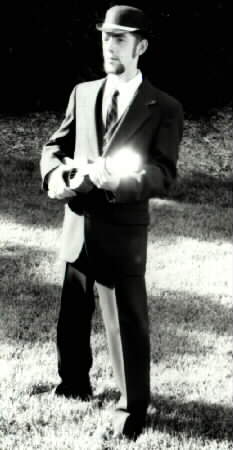 In 1866, 1824 Techno
took a risky journey into the South to raise the peoples’ war-weary spirits. Their
music was widely popular with younger audiences, and people auditioned to gain a spot in
the band. Not until hearing the wily banjo techniques of Ambrose H. Deagans did Buel and
Hugh decide to add a new member. Then three members strong, the outfit traveled to Europe
and South America, where Buel learned many new exotic drum beats to install in the
punch-card memory of his synthesizers.
In 1866, 1824 Techno
took a risky journey into the South to raise the peoples’ war-weary spirits. Their
music was widely popular with younger audiences, and people auditioned to gain a spot in
the band. Not until hearing the wily banjo techniques of Ambrose H. Deagans did Buel and
Hugh decide to add a new member. Then three members strong, the outfit traveled to Europe
and South America, where Buel learned many new exotic drum beats to install in the
punch-card memory of his synthesizers.
 Hugh MacPhereson,
the appointed manager of the band, became too busy to carry out his duties, so he hired a
professional businessman-professor, Doctor Arbagasius Roliman. Doctor Roliman fulfilled
his duties well, and soon became an integral part of the 1824 Techno outfit. This new unit
of four men performed like a well oiled machine, and will into the future.
Hugh MacPhereson,
the appointed manager of the band, became too busy to carry out his duties, so he hired a
professional businessman-professor, Doctor Arbagasius Roliman. Doctor Roliman fulfilled
his duties well, and soon became an integral part of the 1824 Techno outfit. This new unit
of four men performed like a well oiled machine, and will into the future.
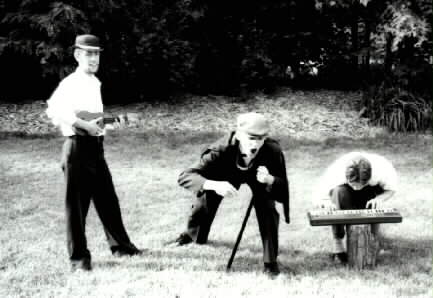 The long and exciting history of 1824
Techno would take books to completely recount, but in the formation of the band, the true
pioneering musical spirit of the members is found.
The long and exciting history of 1824
Techno would take books to completely recount, but in the formation of the band, the true
pioneering musical spirit of the members is found.


